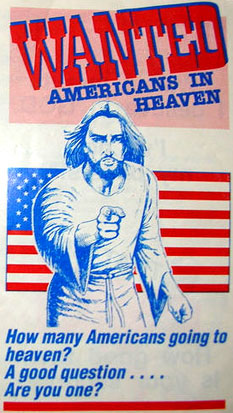 I was recently interviewed by a “secular” journalist who had read some of my books. He said, “Your religion doesn’t seem to keep you constantly dividing the world into us and them, in and out, good and bad. Is that legitimate, or is that compromise?”
I was recently interviewed by a “secular” journalist who had read some of my books. He said, “Your religion doesn’t seem to keep you constantly dividing the world into us and them, in and out, good and bad. Is that legitimate, or is that compromise?”
I explained that as a follower of God in the way of Jesus, I am taught to see every person as my neighbor. The first thing I think upon meeting someone is not, “I wonder if she’s a Christian?” but “This is my neighbor. This is a beautiful person, a bearer of the image of God, someone I have the opportunity to know and appreciate and perhaps even serve in some way.” Seeing others this way isn’t a compromise of my Christian commitment; it’s an expression of it, I explained.
The reporter responded humorously, “What good is being religious if you can’t feel superior to anybody?” We both laughed, but after the interview, I couldn’t stop thinking about the serious point conveyed by his ironic comment.
What is religion for? Is it for creating an in-group that feels superior? Or is it for turning us into neighbors who want to appreciate, love, and serve one another?
Of course next to nobody would ever say overtly that the purpose of their religion is to feel superior. In fact, it just struck me that at this very moment, my act of writing, and your act of reading, could turn us into a kind of elite “in-group” who share the superiority of having one kind of religion over another.
The danger of in-grouping and out-grouping is, I think, subtle, inescapable, and universal, whatever the religion (or irreligion, or political party, or ideology) one holds. No wonder Jesus said, “A tree is known by its fruit;” Paul said, “If I don’t have love, I’m nothing;” James said, “Faith without works is dead;” and John said, “Anyone who does not do what is right is not a child of God; nor is anyone who does not love his brother.”
Last time I checked, three of the top 10 “religious” books were in praise of atheism and against religion in all its forms. In these times of snarky religious cold wars in some quarters and hot religious violence in others, I’m not surprised. Those of us who see religion in a different light – who see religion as a powerful motivation to care for the widow and orphan, to seek justice and peace, to love our neighbors and our enemies – shouldn’t feel superior, but we should keep practicing, and preaching, with humility and focus. It’s so easy to get distracted, and a lot is at stake.

Brian McLaren (brianmclaren.net) is an author, speaker, Red Letter Christian, and serves as board chair for Sojourners/Call to Renewal. His most recent book is The Secret Message of Jesus, and his next book, Everything Must Change: Jesus, Global Crises, and a Revolution of Hope, will be released later this year.
